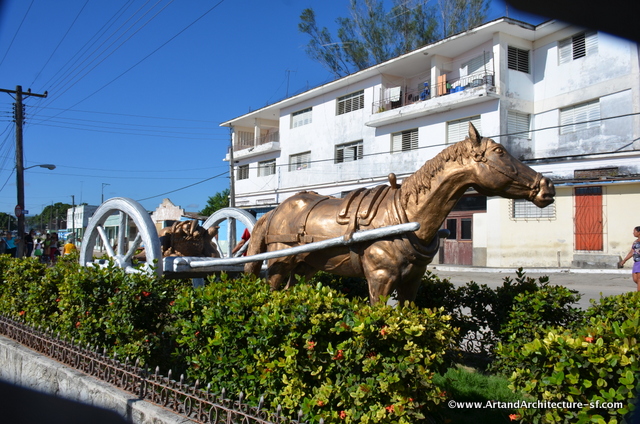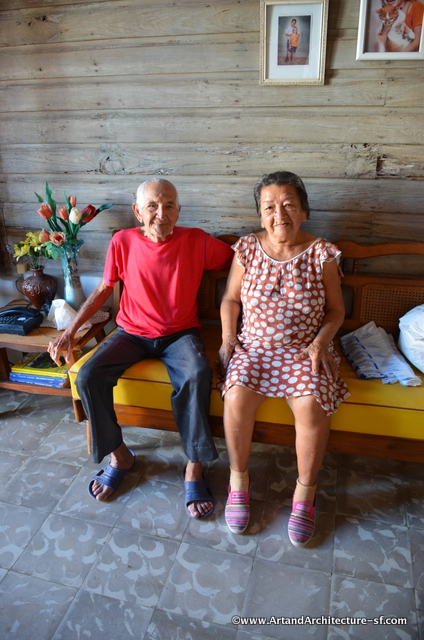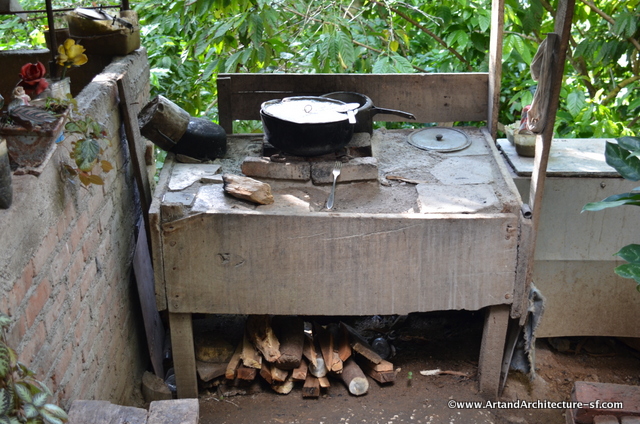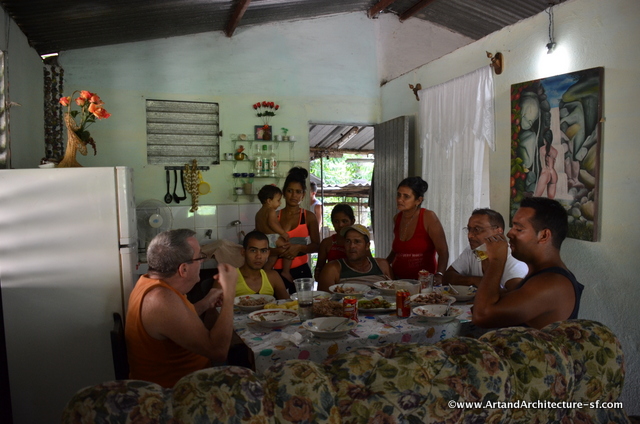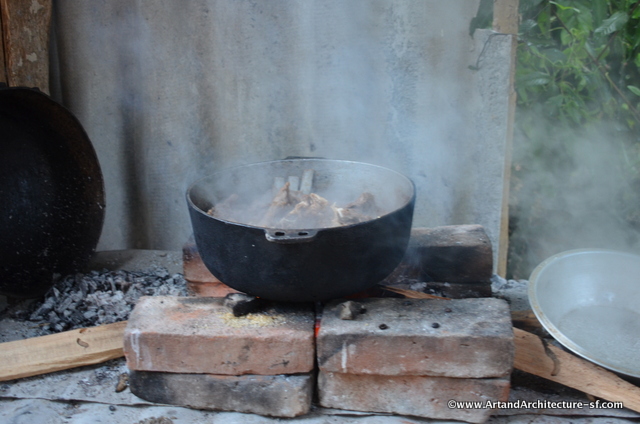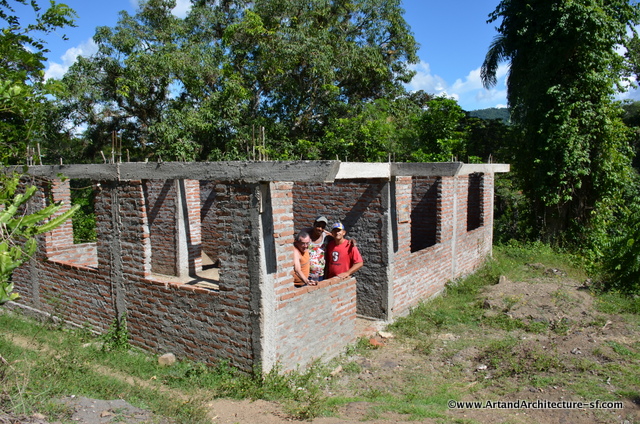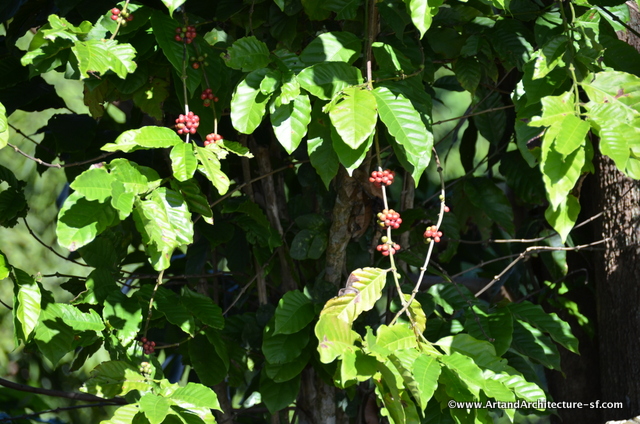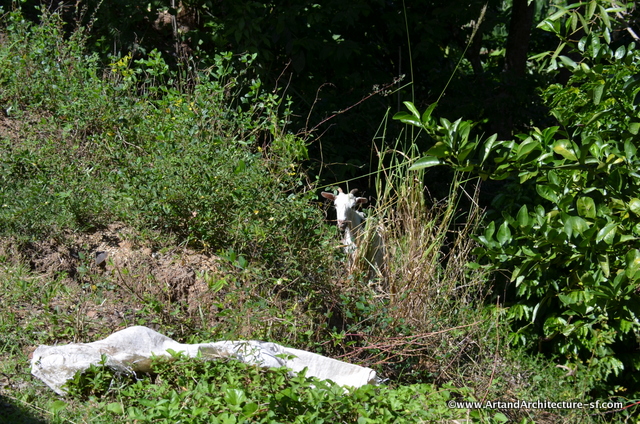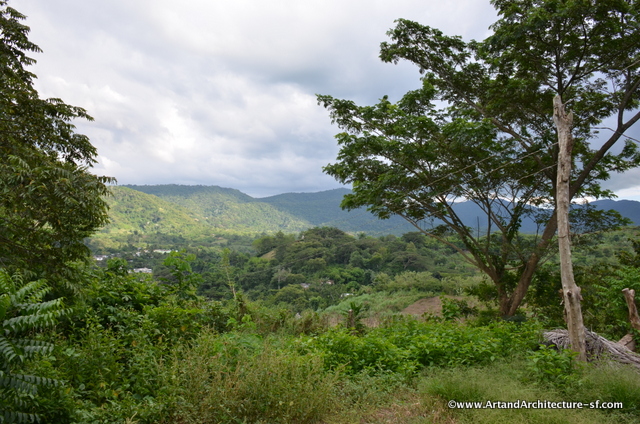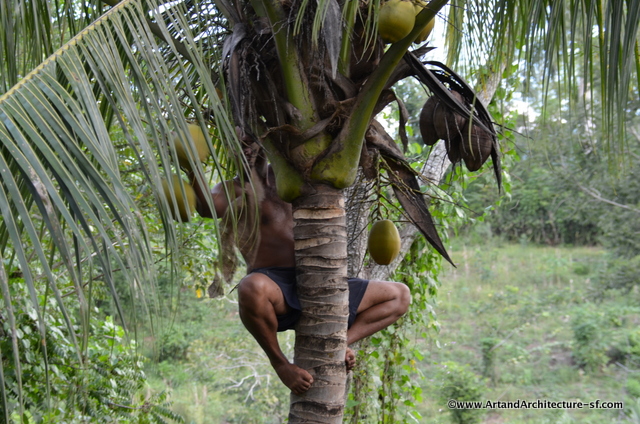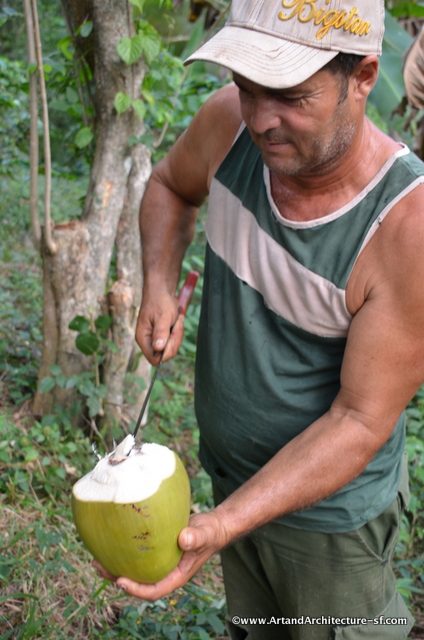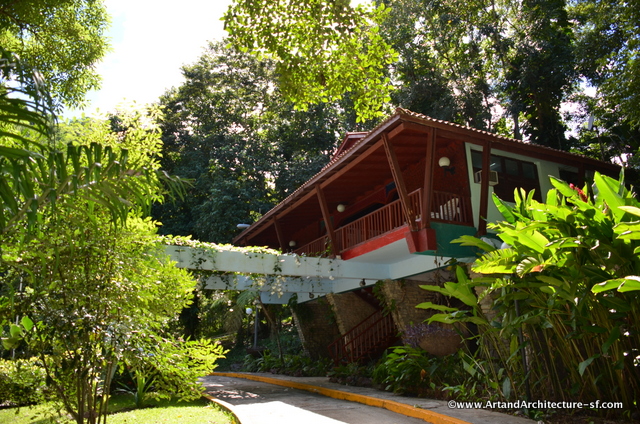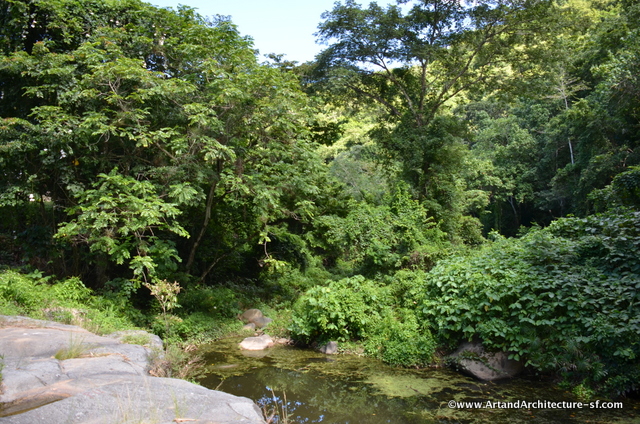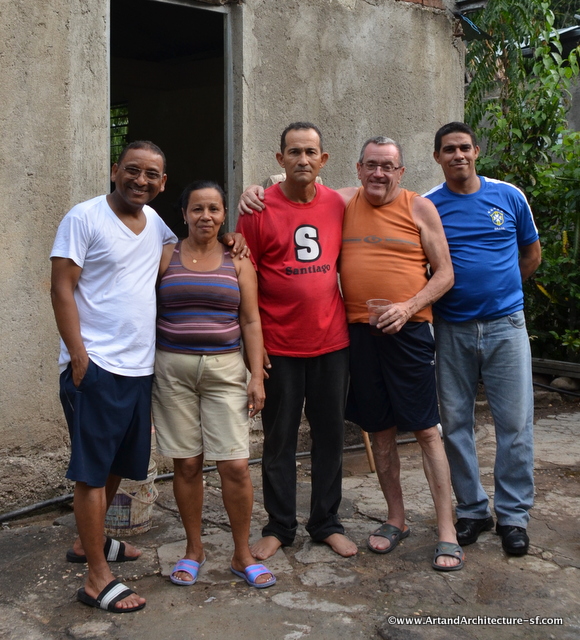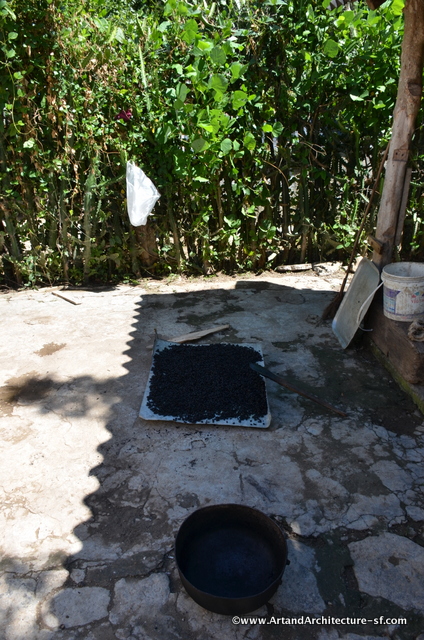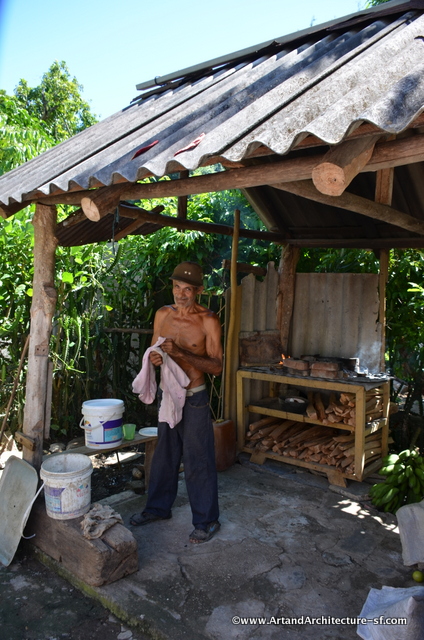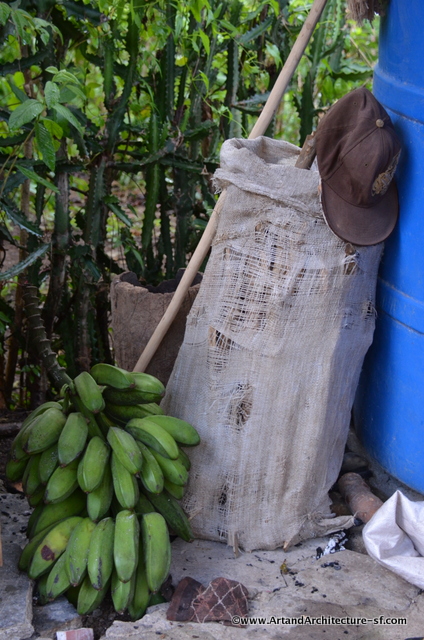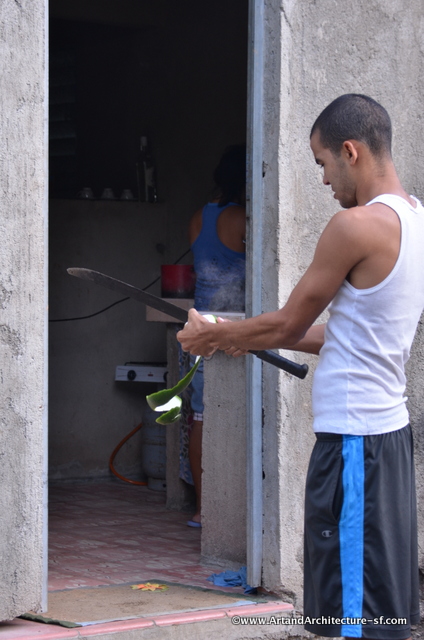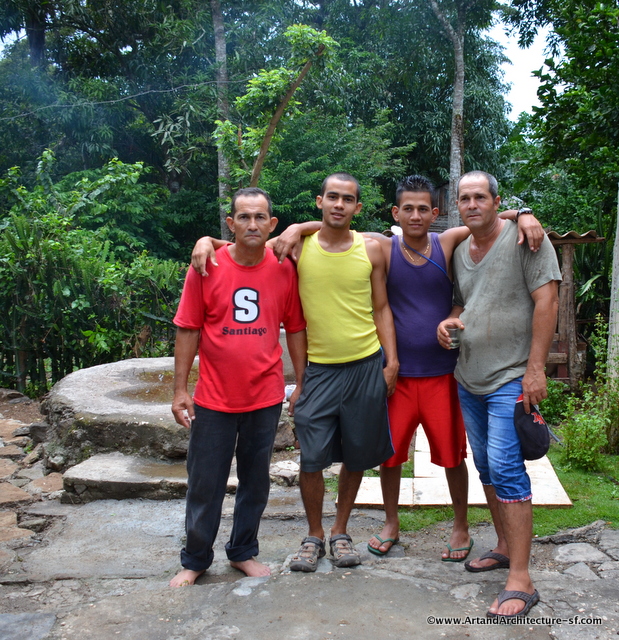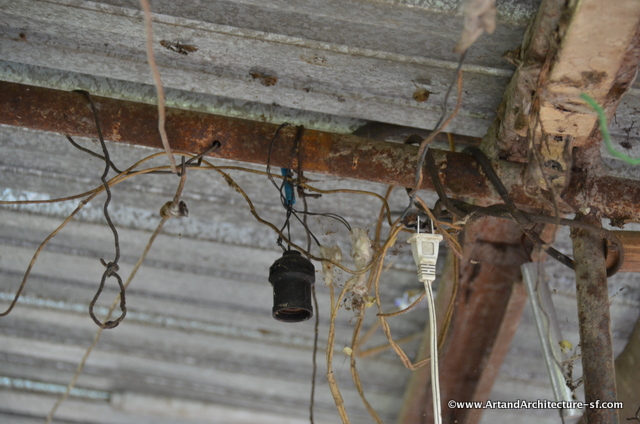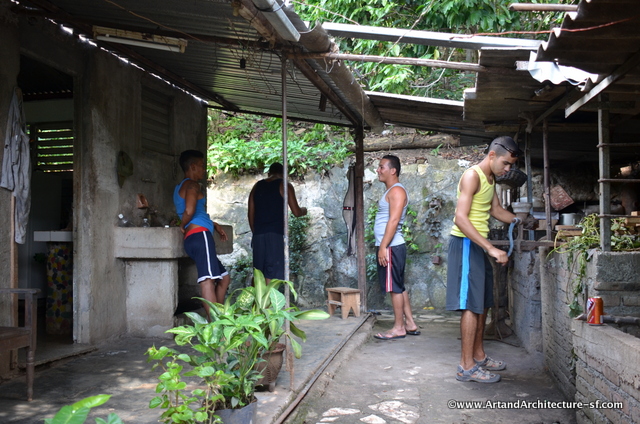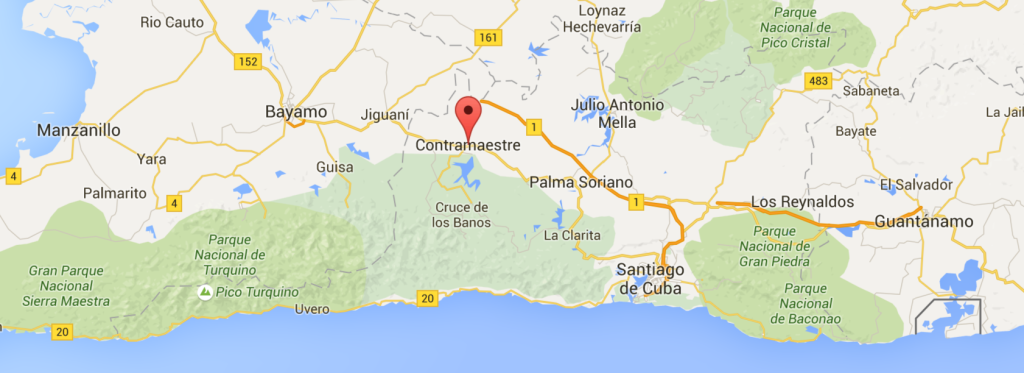October 2015
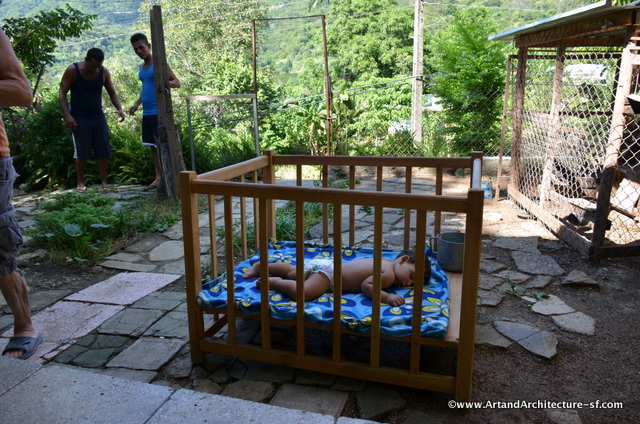
There is nothing like being a member of a Cuban family, there is love, fierce loyalty, and drama, drama, drama. It was time to spend a day and night with the family in the countryside, and that meant drinks, food, drinks, food, love, hugs, kisses, and family politics.
Let me begin in Contramaestre. There is no real reason for the town, other than towns have to spring up someplace. There is a mercado and grocery store, and the services necessary for people to function, but not much else. It is a town of around 45,000 although 100,000 plus if you count the people living in the countryside.
The horse and cart are the number one source of transportation in the countryside of Cuba, it has been immortalized in bronze paint here in Contramaestre.
Before leaving Contramaestre we stopped in on the parents of my dear, dear friend Juan Jose. We stopped in just to say hi and drop off a few groceries, they are some of the most lovely people one can have the pleasure to meet.
Loaded with vegetables for our meals, and a tank of gas we were off to see the family. It is a difficult concept to grasp for most people, but Cubans don’t eat vegetables, even in the countryside where they could grow them, it is not part of the Cuban diet. This is why we buy before we go.
Our first stop was the family we were to have lunch with – this would be an Aunt, Uncle, and cousins on one side of the family. For those that do not come from an extremely extended family, or do not understand Cuban families, it is difficult. However, since marriage is not part of the Cuban culture, it is almost impossible for an outsider to keep track of who belongs to whom, and which clan and which branch. I try and try and try, as a non-Cuban to remember, but it is futile.
Lunch was in house one. The food will always consist of beans and rice and then some sort of protein. The protein is most often chicken or pork, but in the countryside can also be lamb or goat. Rum, beer, and soda are your drink options. Water is unsafe to drink, even for the Cubans, and in the countryside, bottled water is expensive.
My Cuban brother and his husband are building a house in the countryside so we had to take a trip after lunch to see how it is progressing.
Our hosts were two brothers, they inherited their father’s coffee land and this is how they make a living. There is also cocoa beans, coconut and crops to feed the animals such as corn.
The boys were not sure I would be comfortable staying in a Cuban country home so they had the family make a reservation for me at the local government hotel. This is El Salton. I was completely comfortable with my family accommodations, but we not only had to come and cancel the reservation, but we had to buy beer, as there was none to be had in the three towns we tried.
Beer is the same price no matter where you purchase it in Cuba, so it is not uncommon to walk into a bar and get a six-pack to go, the bars are prepared for this and keep a large stock cold.
El Salton sits amongst a lush rain forest with, what is normally, a rushing waterfall. The rains have been poor this year and the waterfall is not what it should be. However, I can not imagine how anyone gets to the hotel. It is at most, a 1/4 mile off of the main road, but one needs incredible patience, and preferably a four-wheel drive to get there. The road is not only ridiculously bad but think, boulders, and I mean boulders. It is a classic government-owned tourist hotel.
Stocked with the beer we headed for house two for conversation, dinner and the night.
As I mentioned, the brothers grow coffee. All the coffee that Cubans grow must, by law, be sold to the government. However, they are allowed to hold back enough for personal consumption. When we arrived the air was filled with the delicious smell of coffee being roasted in the backyard.
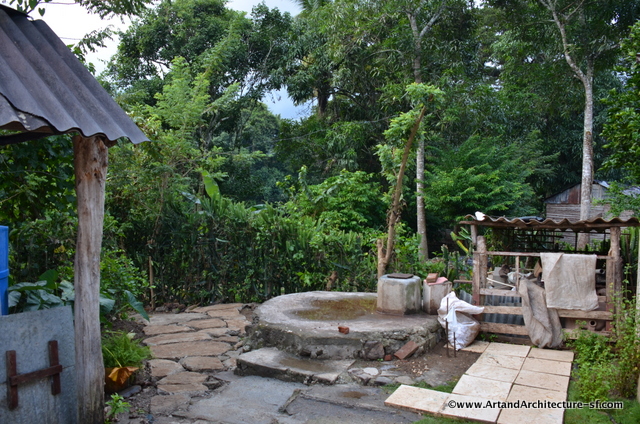
The round concrete thing was once the outhouse, this home just recently got plumbing and a concrete floor. There are still no doors, however.
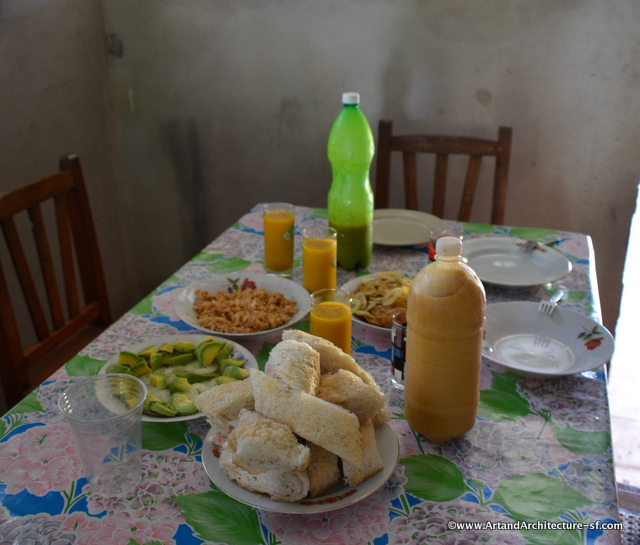
The breakfast table the next morning consisted of eggs, avocados, fried plantains, and bread. The juices in the bottles are guava and papaya.
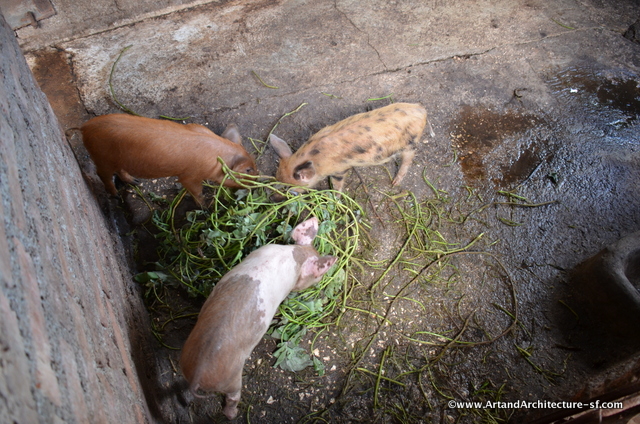
Pigs are kept in the backyard of almost every home in Cuba with the exception of those in large cities where it is prohibited.
This is the Cuba that tourists do not see. This is where the decisions made in Washington and Havana will have some of the biggest impacts, especially regarding coffee and cocoa growing, production and exportation, and yet it is a Cuba completely unknown.
These are the people of a past era, living completely off of the land, yes they have electricity and newly installed flooring, but it is a way of life that died in the 1930s in most first world countries.
Families around the world bring baggage, but when you sleep with walls that do not go to the roof, one bathroom, and mud floors, that baggage is exposed and means for a fiercely close-knit organization, and something I am so privileged to be a part of.
